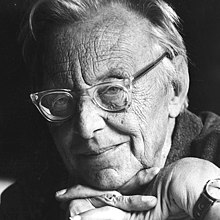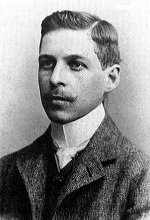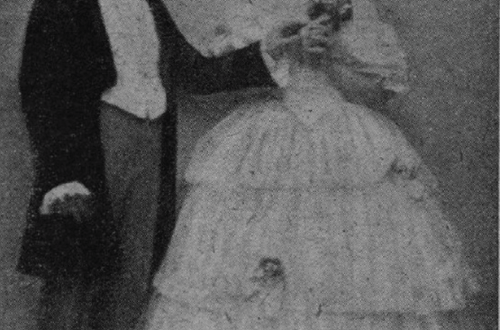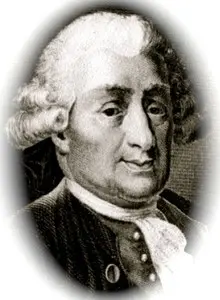
Carl Orff |
Carl Orff
The activity of Orff, who discovers new worlds in the culture of the past, can be compared with the work of a poet-translator who saves the values of culture from oblivion, misinterpretation, misunderstanding, awakens them from a lethargic sleep. O. Leontieva
Against the backdrop of the musical life of the XX century. the art of K. Orff is striking in its originality. Each new composition of the composer became the subject of controversy and discussion. Critics, as a rule, accused him of a frank break with the tradition of German music that comes from R. Wagner to the school of A. Schoenberg. However, the sincere and universal recognition of Orff’s music turned out to be the best argument in the dialogue between composer and critic. Books about the composer are stingy with biographical data. Orff himself believed that the circumstances and details of his personal life could not be of any interest to researchers, and the human qualities of the author of music did not help to understand his works at all.
Orff was born into a Bavarian officer family, in which music constantly accompanied life at home. A native of Munich, Orff studied there at the Academy of Musical Art. Several years later were devoted to conducting activities – first at the Kammerspiele theater in Munich, and later in the drama theaters of Mannheim and Darmstadt. During this period, the early works of the composer appear, but they are already imbued with the spirit of creative experimentation, the desire to combine several different arts under the auspices of music. Orff does not acquire his handwriting immediately. Like many young composers, he goes through years of searching and hobbies: the then fashionable literary symbolism, the works of C. Monteverdi, G. Schutz, J. S. Bach, the amazing world of lute music of the XNUMXth century.
The composer shows an inexhaustible curiosity about literally all aspects of contemporary artistic life. His interests include drama theaters and ballet studios, diverse musical life, ancient Bavarian folklore and national instruments of the peoples of Asia and Africa.
The premiere of the stage cantata Carmina Burana (1937), which later became the first part of the Triumphs triptych, brought Orff real success and recognition. This composition for the choir, soloists, dancers and orchestra was based on the verses to the song from the collection of everyday German lyrics of the 1942th century. Starting with this cantata, Orff persistently develops a new synthetic type of musical stage action, combining elements of oratorio, opera and ballet, drama theater and medieval mystery, street carnival performances and Italian comedy of masks. This is how the following parts of the triptych “Catulli Carmine” (1950) and “Triumph of Aphrodite” (51-XNUMX) are solved.
The stage cantata genre became a stage on the composer’s path to creating the operas Luna (based on the fairy tales of the Brothers Grimm, 1937-38) and Good Girl (1941-42, a satire on the dictatorial regime of the “Third Reich”), innovative in their theatrical form and musical language. . During the Second World War, Orff, like most German artists, withdrew from participation in the social and cultural life of the country. The opera Bernauerin (1943-45) became a kind of reaction to the tragic events of the war. The peaks of the composer’s musical and dramatic work also include: “Antigone” (1947-49), “Oedipus Rex” (1957-59), “Prometheus” (1963-65), forming a kind of ancient trilogy, and “The Mystery of the End of Time” ( 1972). Orff’s last composition was “Plays” for a reader, a speaking choir and percussion on the verses of B. Brecht (1975).
The special figurative world of Orff’s music, his appeal to ancient, fairy-tale plots, archaic – all this was not only a manifestation of the artistic and aesthetic trends of the time. The movement “back to the ancestors” testifies, first of all, to the composer’s highly humanistic ideals. Orff considered his goal to be the creation of a universal theater understandable to everyone in all countries. “Therefore,” the composer emphasized, “and I chose eternal themes, understandable in all parts of the world … I want to penetrate deeper, rediscover those eternal truths of art that are now forgotten.”
The composer’s musical and stage compositions form in their unity the “Orff Theater” – the most original phenomenon in the musical culture of the XNUMXth century. “This is a total theater,” wrote E. Doflein. – “It expresses in a special way the unity of the history of the European theater – from the Greeks, from Terence, from baroque drama up to modern opera.” Orff approached the solution of each work in a completely original way, not embarrassing himself with either genre or stylistic traditions. The amazing creative freedom of Orff is primarily due to the scale of his talent and the highest level of composing technique. In the music of his compositions, the composer achieves the ultimate expressiveness, seemingly by the simplest means. And only a close study of his scores reveals how unusual, complex, refined and at the same time perfect the technology of this simplicity.
Orff made an invaluable contribution to the field of children’s musical education. Already in his younger years, when he founded the school of gymnastics, music and dance in Munich, Orff was obsessed with the idea of creating a pedagogical system. Her creative method is based on improvisation, free music-making for children, combined with elements of plasticity, choreography, and theatre. “Whoever the child becomes in the future,” Orff said, “the task of teachers is to educate him in creativity, creative thinking … The instilled desire and ability to create will affect any area of the child’s future activities.” Created by Orff in 1962, the Institute of Musical Education in Salzburg has become the largest international center for the training of music educators for preschool institutions and secondary schools.
Orff’s outstanding achievements in the field of musical art have won worldwide recognition. He was elected a member of the Bavarian Academy of Arts (1950), the Academy of Santa Cecilia in Rome (1957) and other authoritative musical organizations in the world. In the last years of his life (1975-81), the composer was busy preparing an eight-volume edition of materials from his own archive.
I. Vetlitsyna





